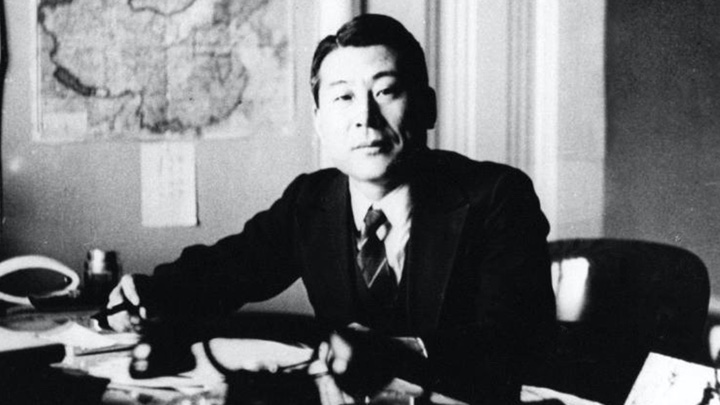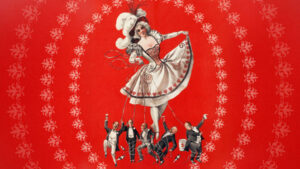
Chiune Sugihara
It was a mostly solemn occasion, on the one hand remembering Holocaust, but on the other celebrating the life of Chiune Sugihara. The part-concert, part-service opened with a candle-lighting ceremony featuring foreign dignitaries and Sugihara’s son.
Who was Sugihara, you ask? He was a Japanese diplomat posted in Lithuania who helped thousands of Jews fleeing Europe.
Sometimes such history lessons can feel abstract and intangible. But this was not the case when chorus master Zalmen Mlotek, a descendent of such refugees, said “I owe my life to Sugihara.”
Starting off the program was Karen Tanaka’s Guardian Angel, which is characterized by harp and staggered strings. But the centerpiece was the U.S. premiere of Lera Auerbach’s Symphony No. 6, “Vessels of Light.”
The title refers to both Kintsugi—the Japanese art of repairing broken pottery using glue mixed with powdered gold—and the concept of Shevirat ha-Kelim or the “Breaking of the Vessels.”
Cello soloist Kristina Reiko Cooper wore a gold-lined Kintsugi-inspired green gown. Cooper, who is Japanese-American, resonated with “Vessels of Light” in several ways, being married to a descendent of one of Sugihara’s Jewish refugees.
In the program notes, composer Auerbach says she set “Psalm 121” for a capella choir, then fragmented it. She interspersed the wordless harmonies with solo cello, which acts as the “glue.” The Psalm is meant to be read internally, projected as subtitles.
There’s a lot going on: orchestra, chorus, cello soloist, whisperers, and vocal soloists. But, despite my dubiousness, I thought that the cello really did hold it all together.
Matthew “Motl” Didner held the rare honor of “whisperer and Yiddish coach,” according to the program. On either side of the stage, he and Stephanie Lynne Mason spoke in hushed tones. The guttural language, closely mic’d, sounded spine-chilling.
The libretto includes Yiddish poetry, including “A Cello Plays a Death Song” by Simkha Shayevitch. There is also Dovid Hofshteyn’s “Violoncello,” in which the instrument represents “that which is unnameable, that mystical ‘string’ that unites all Jewish people.” The repeated line “Why do you vibrate, my soul?” becomes increasingly urgent.
Cooper’s part was characterized by extended techniques, such as sul ponticello tremolos, and audacious slides. This created all kinds of textures, from atmospheric to crunchy.
The orchestration was just as experimental, with tolling bells and bird calls. It reminded me, at times, of tonal (or not-so-tonal) Schoenberg.
Nonetheless, WooYoung Yoon’s tenor voice managed to break through all of that. At one point, he sung in falsetto, imitating an angel, while the cello’s trills rose higher and higher. Mezzo-soprano Amy Maude Helfer sounded gorgeous singing “Silence” or “Shtillkayt.”
Soprano Elizaveta Ulakhovich was often in duet with the cello, later singing “Mama,” rising, Gorecki-esque, above the orchestra. Christopher Job lent much-appreciated bass-baritone grounding.
Towards “Vessels of Light’s” end is a haunting line about “fiddle who needs no player.” Following jump-scare slapped strings, a solo cello coda ends in a long silence.
On Wednesday night, it hovered in the air, like prayer.





